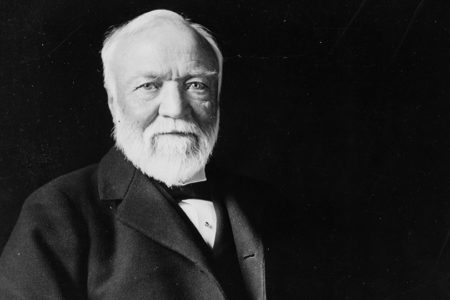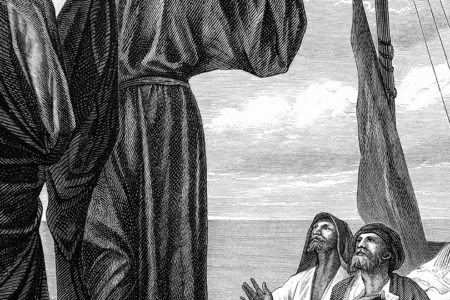Our Blessed Hope
1 Thessalonians 4:13–18
When Paul established the Thessalonian church, he taught believers there about Jesus Christ’s imminent return. They were told, “wait for His Son from heaven, whom He raised from the dead, even Jesus who delivers us from the wrath to come” (1 Th. 1:10). After he left Thessalonica, some believers eventually died, causing the church to wonder what would happen to these dead saints at Christ’s coming.
The church had questions: Had those who died missed Christ’s imminent return? Do people who die before the Rapture lose all hope of sharing in the blessed hope? Had they missed the Kingdom Age? Would they be raised at a general resurrection? In other words, what happens to those of us who die in the Lord? These may be the same questions some of us ask today.
First Thessalonians 4:13–18 explains what happens to all believers, dead and alive, when Christ returns for His church.
The Assurance
The apostle Paul gave clarity and comfort concerning the Lord’s return: “But I do not want you to be ignorant, brethren, concerning those who have fallen asleep, lest you sorrow as others who have no hope” (v. 13).
He affectionately called the Thessalonians “brethren” and did not rebuke them for being ignorant. Instead, he wanted to educate them about the position of those who had died.
The phrase fallen asleep is a euphemism for death. There is no thought here of so-called soul sleep; that doctrine is not scriptural. The soul never sleeps after death; it is extremely conscious. (See Luke 16:19–31.)
By teaching those in “sorrow” (pain and grief) over the death of loved ones, Paul removed the misconception that dead saints missed out on Christ’s coming. On the contrary, believers who die will receive the same benefits as living Christians at Christ’s return for His church. This knowledge gave the Thessalonian believers great hope, peace, and assurance that no one had missed the Rapture.
Our hope as Christians rests in our relationship with Jesus Christ: “For if we believe that Jesus died and rose again, even so God will bring with Him those who sleep in Jesus” (1 Th. 4:14). We should never sorrow over those who died in the Lord because Jesus will bring them with Him at the Rapture.
Paul assured the Thessalonians his teaching was from the Lord: “For this we say to you by the word of the Lord” (v. 15). Paul’s very words came to him from the Lord Jesus Christ: “We who are alive and remain until the coming of the Lord will by no means [never under any condition] precede those who are asleep [already dead]” (v. 15). The dead in Christ will rise first and will be the first to meet the Lord in the clouds.
Notice how Paul lived with the great expectation of the Lord’s imminent return: “we who are alive and remain.” This teaching gave further assurance the dead in Christ had not missed the Rapture.
The Reappearance
Paul explained the process that will take place at the Rapture: “For the Lord Himself will descend from heaven with a shout, with the voice of an archangel, and with the trumpet of God” (v. 16). Christ will return personally for His church (cf. Jn. 14:3; Acts 1:9–11).
We’ll hear three sounds at the Lord’s appearing:
- A shout. Christ will descend with a shout in the form of a command, like a drill sergeant ordering his troops to attention with authority and urgency. Scripture does not divulge the content of the shout, to whom it is directed, or who does the shouting—whether it is Christ Himself, an archangel, or simply a voice from heaven. This much we know: The sound from heaven will be heard by church saints dead and alive, and they will respond immediately.
- The voice of an archangel. We do not know if there is more than one archangel; Michael is the only one the Bible mentions (cf. Dan. 10:13; 12:1; Jude 9). The Bible does not reveal what the voice sounds like or whether it contains spoken words.
- The trumpet of God. The trumpet belongs to God, but Scripture tells us nothing else. The trumpet is connected to end-times events: the Rapture of the church (1 Cor. 15:52), the seven trumpet judgments in the Great Tribulation (Rev. 8—9; 11:15), and the trumpet blown to gather God’s elect from around the world after Christ’s Second Coming (Mt. 24:31).
The trumpet in 1 Thessalonians 4:16 and the “last trumpet” in 1 Corinthians 15:52 speak of the same event, when God raises dead church saints and unites them with living church saints in the clouds to meet the Lord in the air.
The Rapture
Paul said, “And the dead in Christ will rise first” (v. 16). Even though we die, we are still part of the church. Death does not change our standing or relationship to Jesus Christ.
Although our bodies lie in the grave, our souls and spirits are in God’s presence, where we consciously enjoy eternal bliss as we wait for our glorified, resurrected bodies: “We are confident, yes, well pleased rather to be absent from the body and to be present with the Lord” (2 Cor. 5:8). When the Lord appears for His church, the dead in Christ are the first to be resurrected. “Then we who are alive and remain shall be caught up together with them in the clouds to meet the Lord in the air. And thus we shall always be with the Lord” (1 Th. 4:17).
The phrase caught up comes from the Greek word harpaz¯o, meaning, “to seize,” “snatch up,” or “carry off by force.” It means the same as the Latin word rapturo, where we get the English word rapture. Scripture calls the rapture a “mystery” (1 Cor. 15:51) that takes place “in a moment, in the twinkling of an eye” (v. 52). Those of us who are Christians will be changed and receive glorified bodies, preparing us to live forever in the eternal state.
Jesus said He will come again to take believers to heaven (Jn. 14:1–3). The purpose of being caught up is “to meet the Lord in the air. And thus we shall always be with the Lord” (1 Th. 4:17).
The Comfort
The apostle concluded his words of assurance with a simple statement: “Therefore comfort one another with these words” (v. 18).
The word comfort could be translated “encourage.” Both words provide hope. Notice, Paul did not say he would comfort them continually. Rather, he exhorted them to encourage and comfort one another in the Lord. This was a command, not a suggestion.
The Controversy
Over the years, scholars have debated the timing of the Rapture. (See “When Is It?” by Mike Stallard in the January/February 2018 issue.)
I believe Scripture teaches a pretribulation Rapture (it will occur before the seven-year Tribulation) for the following reasons:
- God promises to deliver His church from the wrath of the Tribulation that will come on the whole world (1 Th. 1:10; 5:9–10; Rev. 3:10).
- The word church appears 19 times in Revelation 1—3 but not at all in Revelation 4—18 when God pours out the seal, trumpet, and bowl judgments on Earth.
- The Rapture is imminent (impending), meaning no prophecy in Scripture need be fulfilled before it occurs.
We do well to ask ourselves, How should I prepare for the imminent return of the Lord? Only people who have put their faith in Christ alone for salvation will go with Him at the Rapture. If you aren’t certain you have trusted in Him alone, now is the time to repent of your sin and accept Jesus Christ as your Savior. Why not do it today?








But the saints will not be taken to heaven rather they will return on this earth in zion according to
Isaiah 35:10 also,
Isaiah 51:11
1 Thess 5 is identified as referring to the day of the Lord (v2) which is the second coming and day of judgement. 1 Thess 4 describes a noisy event, not some secret rapture. It is the coming of the Lord, to save and to judge. Rev 3:9-11 is also describing His coming to save and to judge.